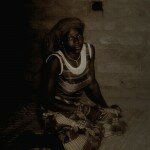H.E. Chantal Compaoré |10 November 2009 | The Monitor
Opinion
In countries all over the world today, women live with the threat, or consequences, of Female Genital Mutilation (FGM). In Africa alone an estimated three million girls and women are subjected to the practice each year, and some 92 million of the continent’s female population are estimated to have been victims of FGM.
The justification for the procedure changes from country to country. In some parts of the continent, religious scriptures are disingenuously invoked. In others parts it is cultural traditions that help keep the practice alive. But whatever the reasoning, the simple fact of the matter is that FGM is a blatant violation of the most fundamental human rights and must be eradicated.
Many States in which FGM is practiced are signatories to the African Union’s Protocol on the Rights of Woman, Article 5 of which explicitly calls for legislation banning FGM. And while there are positive signs of a shift away from the practice in many countries, the failure of many African Union States to ratify the Protocol and the scarcity of effective national legislation is hampering a more coordinated effort to rid the continent of this scourge.
Which is why the government of Burkina Faso and the human rights organisation, No Peace Without Justice, organised a high-level meeting in Ougadougou fromNovember 8-10 to discuss the important next steps that need to be taken towards a global ban on FGM.
The meeting, sponsored by the Italian government, was meant to bring together law makers, NGOs, government ministers and community leaders as well women from throughout the region who have dedicated, and sometimes even risked, their lives to ensure that future generations are not subjected to FGM.
The meeting was a platform to issue a call to other African First Ladies to commit themselves to the abolition of FGM by joining a continent-wide effort to educate and legislate. Educate their communities – particularly women – about their rights under international law, and push for legislation that enshrines those rights at a national level.
First Ladies Suzanne Mubarak of Egypt and Janet Museveni of Uganda are among those who have already spoken publicly – and vociferously – about their opposition to FGM. What is important now is to expand and coordinate the actions of this alliance of like-minded women. A coalition of Africa’s First Ladies committed to the eradication of FGM would not only give the issue the visibility it deserves, but also provide the leadership required to outlaw the practice once and for all.
Burkina Faso is proud of the leading role it has played in the region in the elimination of FGM. It is among only a handful of African nations to have enacted effective legislation banning the practice. The subsequent prosecution of FGM practitioners, combined with a nationwide education campaign, has shifted community attitudes, led to a drop in the incidence of FGM and – importantly – provided an example, and encouragement, for similar campaigns that have sprung up in neighbouring countries.
The Ougadougou meeting comes at a crucial moment for the growing movement – in Africa and around the world – towards a global ban on FGM. This summer in Mali, thousands of women marched throughout the country demanding that their parliament enact legislation against FGM. Despite the best efforts of the conservative forces promoting FGM, communities in countries all over Africa are starting to question the practice.
The lesson learned in Burkina Faso is that women across the country are empowered to resist FGM when the population as a whole, including women in both rural and urban areas, understand not only the health consequences of FGM but are made aware of women’s legal rights, as recognised and protected by the Constitution and by national laws.
The moral imperative to rid the world of this most heinous violation of human rights most definitely exists, the international protocol is firmly in place – now all that is required is the leadership and the political will to consign this brutal practice to the history books where it belongs.
H.E. Chantal Compaoré is the First Lady of Burkina Faso. Emma Bonino, vice president, Italian Senate, and Founder, No Peace Without Justice, contributed to this article.
Related posts:
- Transportation within CEMAC : Efforts to Harmonise Procedure on Course Godlove BAINKONG |- CAmeroun Tribune |[19/10/2009] Cameroon’s committee charged with...
- Interview with AfDB Chief Economist, Louis Kasekende “…the Bank is finding new ways of attracting African experts...
- The Head of State calls for Dialogue of Civilisations In a highly applauded speech at the United Nations, President...
Related posts brought to you by Yet Another Related Posts Plugin.









